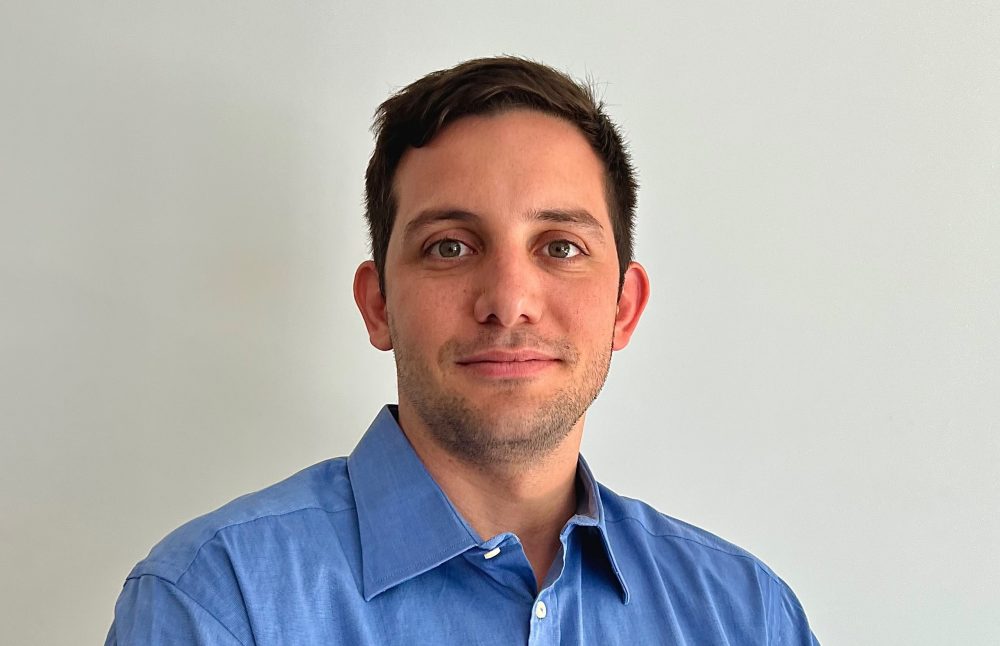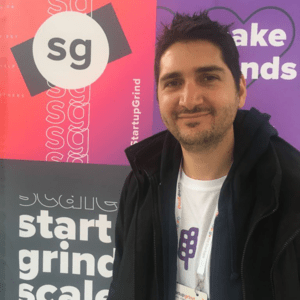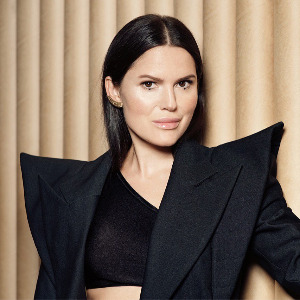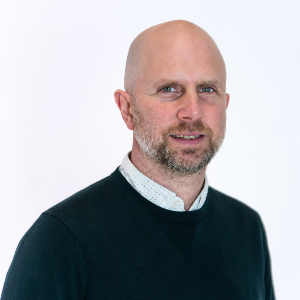I’m a computer engineer transformed into a ⚙️ passionate No Coder ⚙️. Reach out if you want to get introduced or learn more about the No Code world!
It’s not so complicated: De-risking your idea through your strategy with Srishti Ellson
Almost every entrepreneur that Srishti Ellson is meeting is trying to find the biggest possible market they can.
That’s so common with early-stage founders.
But if you try to start by pleasing everyone, you will probably not going to please anyone.
In this insightful podcast episode, Srishti shares her valuable experiences on how to de-risk your startup idea through strategy.
Get inspired to embrace experimentation and take strategic risks.
This episode is a must-listen for aspiring entrepreneurs who want to boost their chances of success!
In this episode, you’ll hear about:
- De-risking your startup by identifying your risks
- An analog process that helped Srishti build an AI app for dog training
- The scientific method: build a hypothesis, test a hypothesis, and be willing to be wrong
- How to get started with learning how to de-risk your startups
Tools mentioned:
- 99designs, to get a variety of options for design and branding
- Notion, for organizing ideas and thoughts
And all these in less than 16 min.
Transcript
Spyros Tsoukalas: Hello everyone, we are discussing with Srishti today about de-risking your idea through your strategy. Srishti is currently working on corporate strategy at Insight Enterprises while and she has previously worked at three startups, startups with two successful exits. So, she’s here today to share with us her learnings on startup strategy. Welcome, Srishti.
Srishti Ellson: Hi Spyros. It’s great to be here. I feel like I’m on Jeopardy.
Spyros Tsoukalas: So, startup strategy, could you tell us something we don’t know? And something that you probably have learned along your startup journey?
Srishti Ellson: Well, there’s a lot I didn’t know when I started, and there’s probably still a lot I don’t know. Now, I think one of the most interesting things I see when I talk to people, is that every entrepreneur I see is trying to find the biggest market they possibly can for themselves. So I’ve actually talked to a lot of people on Growth Mentor, and I’ve talked to a lot of people outside of Growth Mentor. And that’s so common with early-stage founders. They’re trying to find the biggest possible market. So it’s the most attractive for entrepreneurs and investors. And I’m like, that’s great, right? Look for the biggest market you can. But if you try to start with pleasing everyone, the chances you’re not going to please anyone, right? So find a big market, but then decide what small portion of that market you actually want to target. With your first launch, your first product, your first offering, really focus on what is going to make it worthwhile for that small part of your market. Facebook did this really well when they first started with their concentric circle theory. So, starting with college campuses, and then eventually expanding, you know, to wider and wider circles until, you know, a third of the world had a Facebook account. They didn’t start there.
Spyros Tsoukalas: Wow, this was a very, very strong beginning. I’m excited about the rest of the conversation. So, if we make a step away from the specific silence that you mentioned, we will start examining the problems or the mistakes that startups do when dealing with a strategy. Could you elaborate a little more on that?
Srishti Ellson: Sure. So, you know, we talked about de-risking a lot, right? And it’s an interesting concept, because when you think about strategy, the first thing that typically comes to mind is like, Oh, I’m going to do these four things. This is what I’m going to launch. This is what my marketing strategy, you know, this is what I’m going to market it to. And all that is great, right? But none of it fundamentally answers the question of like, where’s the risk with your idea? And how are you going to test and disprove that risk? And that’s a very different way of looking at how you want to build a strategy than, you know, here’s my four-step business model. And here’s how I’m going to monetize and etc. right? So, taking a step back and saying, you know, yes, it’s great to have a business model and think through these different components and build your strategy in, you know, there’s that sort of like lean startup business model framework. Let’s actually use an example from my past, if I’m going to build a mobile app that uses machine learning to help people train their dogs, what are the actual risks with that idea, right? That’s actually one of my previous exits. But, taking that idea and saying, you know, here’s my business model I’m going to charge people a subscription, I’m going to build an app, I’m going to have it on Android, I’m going to do you know, we use word of mouth go to shelters, that was all strategy. But it wasn’t asking the fundamental questions of are people going to be able to train their dogs with a phone in one hand, telling them what to do. Right? Is this actually an app that we can build, where we can have a progressive method that they can learn from it, none of those things required me to build an app to test, right? What those things actually required was me creating a stack of index cards with instructions on them and taking that stack of instruction cards to the animal shelter and handing it to people adopting dogs, and saying, Hey, can you hold these index cards in one hand, and flip through them and do these things with your dog and see how that worked for them? And so it was a very analog process, right? And it had nothing to do with my business plan. But it was a really important component of figuring out if this idea even going to work. Is it going to work the way I want it to work for people? Or is it gonna be intuitive for them? Do we need a voice component because they are having to hold something in one hand where we might need them to have treats in that hand? And so going through that process and saying, Okay, we’re probably going to need some sub-level of voice component, how are we going to account for, you know, what percentage of dogs didn’t respond? How are we going to account for that? So, it was a really important process going through that and it was really informative. So that’s what de-risking means, right? Looking at what are the actual points of failure here? Not just what is my business?
Spyros Tsoukalas: Perfect. I loved how specifically became through this example. So, moving towards your approach, how do you de-risk the project you’re working on, and what are the goals that you are trying to meet in order to de-risk those?
Srishti Ellson: Right. So, strategy projects in the corporate world are very similar to startups in the de-risking process. You say I want to do X, and then say, what are my failure points? And then how do I build experiments? You know, I trained as an engineer, I’m sure a lot of you are engineers who are listening to this. And even if you’re not, you know, basic scientific process, you build a hypothesis, right? Say, these are my failure points, how do I design an experiment to test this failure point? And then, once you’ve done that, that’s the kind of thing that you can take to investors and say, hey, you know, these were the three failure points that we identified. And this is how we proved each of those failure points, will hold up or we can surpass that failure point or say, you know, because of this, we learned and we want to pivot and, you know, do this to mitigate this failure point, because we’ve tested it, we’ve experimented on it, right? None of us go into it, knowing all the answers, we have to go out and experiment and see what will work and what won’t work.
Spyros Tsoukalas: And do you follow any specific frameworks or methodology that you could structure in a few steps?
Srishti Ellson: Not one specific framework that I would point to, I do honestly think the scientific method is kind of the best way to do a lot of these things, which is building a hypothesis, testing your hypothesis, and being willing to change it after based on the results of that test, right? The more you go out there and actually test the things you’re saying, the more successful you’re going to be, because you will have proof and that proof will lead to growth, right? That’s how you get growth. That’s how you get traction, right? All of those people that all have shelters where I walked up to that shelter, and I was like, Hey, I have this stack of business cards, I want to help people train their dogs. Those shelters were the first people I went to when I said, Hey, I have this beta program that I want to offer to the people who are adopting dogs from you, they were like, Yes, we love this, you know, we love being able to provide feedback on it, we loved seeing the impact it had on new adopters. So that testing will lead to your market. That’s really the best thing I can say build a hypothesis, test your hypothesis, and be willing to be wrong, right? We all start companies, because companies and ideas because we’re super passionate about them, and we really want to see them succeed, we feel very strongly that there’s a problem, or there’s a solution that we can create. But you’re just one person, right? I’m just one person, I have a whole list of ideas. And every time I talk to someone new, I bring up one of these ideas. And I say, here’s my idea, what do you think, right? Because they’re never gonna be as passionate about as you are, don’t worry about anyone stealing your ideas. And to you, you’ll get feedback, right? And that’s how you improve your idea.
Spyros Tsoukalas: So seriously, I guess that you get started somewhere to start learning all of these, would you like to share with us the story about starting, learning all these, and then the failures you probably experienced before learning all these?
Srishti Ellson: Sure. So, I had a little bit of an unfair advantage. Starting out both my parents are entrepreneurs. So, other kids grew up with children’s books, I would imagine I grew up with those, you know, those little bit inspirational business books that you see lying around that are about the size of a children’s book and about the reading level, but they’re about business. So, that’s what I grew up with around my house because that’s what my parents were reading, among other things, so I grew up with a lot of business books. And that was a really interesting starting point. And then I learned a lot. And you know, at the end of the day, the two things that were most important in my journey as an entrepreneur were finding the things I was passionate about. So, solving problems that were relevant to me personally, that I could identify with and see myself as a customer for has always been a really important part of that, because that’s where I learned this is a problem I have, and I want to figure out how to solve this problem. And the other one was making a lot of mistakes. I have made many, many, many mistakes. I had a failed Kickstarter, because we would have had a very successful Kickstarter, and then did some very stupid things like raising our goal far beyond what we actually needed to meet one specific need. And it was just a terrible decision. And that’s also why, you know, having a Kickstarter was not necessarily the best idea for us, because if we’d picked any other platform, it would have been a much better starting point. For this particular idea. Kickstarter is great for some things. So, you had a failed Kickstarter, I probably made like 12 business plans that failed before one succeeded. This whole concept of de-risking was actually something that I learned by joining a local incubator. And practicing and talking to other people who are going through it at the same time I was. So, what can you learn from all of this? One, pick something you’re passionate about, right? It’s going to make you want to learn more about it. And then find other people who are passionate, both about that topic, whatever you’ve chosen, and about entrepreneurship. So, I am part of an alumni organization called the Columbia Venture Community. And this is a community of 1000s of alumni globally, who want to be entrepreneurs and are interested in entrepreneurship, or actively in entrepreneurship. And that was an amazing place for me to get advice, to ask people, you know, hey, how do I find accelerators? You know, hey, how do I find a product design company? Hey, you know, where, where can I get a logo? Hey, you know, how do I ask a lawyer about incorporation? All of these questions. Google is your best friend, but just learning from other people, is going to help you build that community that is so important when you’re an entrepreneur to figure out what success looks like for you, and then be able to go make it happen.
Spyros Tsoukalas: Thanks for sharing your story. I guess the Kickstarter was Doggo, or.
Srishti Ellson: It was.
Spyros Tsoukalas: I found it.
Srishti Ellson: Yes, as I said, we were able to exit. But you know, the Kickstarter, which is really sad, because we raised a lot of money. We raised about $65,000 in that Kickstarter. And, in our initially, we had planned to set the goal at 7,000. Because that’s all we needed, at that point, where we needed $7,000. And this is a terrible story, we thought we needed someone else to write the Kickstarter script for us. So, we reached out to this branding company. And we’re like, look, we can’t pay you, because we don’t have any money. But we’ll give you a percentage of this Kickstarter that we do. Like, we’ll give you a percentage of how much we make, and they’re like, fine, but to make our fee, you need to get $75,000 because that was their fee. So like, lots of mistakes, one, we should have just written the script ourselves, it wasn’t that complicated, don’t raise your end goal just to meet one need. And three, focus on what you actually need because if we’d done $7000, and would have been an incredibly successful Kickstarter, we would have made five times as much as we needed would have been a great way to start. We found other ways to get it done, obviously. But, you know, that could have been a huge success story for us. And because of one mistake, it ended up being really not that.
Spyros Tsoukalas: Thanks for getting into the details. Well, last question of the day. And are there any tools that you recommend?
Srishti Ellson: I really like Growth Mentor, I recommend Growth Mentor a lot. I have had such interesting conversations on the platform. And it’s been fantastic. Other tools, I really like 99designs I’ve used. So 99designs is a place where you can get a number of designers to submit their ideas for specific concepts that you’re thinking about, or if you want a logo for and I did that for the Doggo logo and other things I’ve worked on since where you submit and say, hey, I want a logo wanted to look kind of like this, here’s my inspiration. What happens typically, where you have one, you go out and find a designer, and they’ll give you a few ideas, you actually get ideas from hundreds of different designers who all have their own perspectives and their own ideas. So I think you actually get a much higher variety of ideas that you can choose from for a very low cost. I really like 99designs for that. And there you can do website design and app design and a number of other things, but I really liked them for branding. Other tools…I really liked Notion, it’s a more general tool for organizing ideas and thoughts. It’s probably one of the best pieces of software I’ve encountered. And in the recent past, those are probably the two I would recommend that I go back to a lot. I mean, there are lots of different tools for different specific situations. But you know, starting out, like a lot of I, in particular, like do a lot of things in an analog manner, right, like to kind of see what, what I can de-risk without spending a lot of money on it. And so it’s, you know, how do I how can I be creative without spending a lot of money on this idea to figure out whether it’s viable or not.
Spyros Tsoukalas: Srishti, thank you so much for taking the time to share all these experiences and stories with us today. I hope you enjoyed the episode and that people listening to us learn as many things as I did.
Srishti Ellson: I hope so.
Spyros Tsoukalas: Thanks a lot.
In this episode


Hi everyone! I’m a strategy and sales hybrid with a decent helping of operational experience. Can’t wait to hear from you!
Join the community
Enjoy the peace of mind that advice is always only one Zoom call away.


